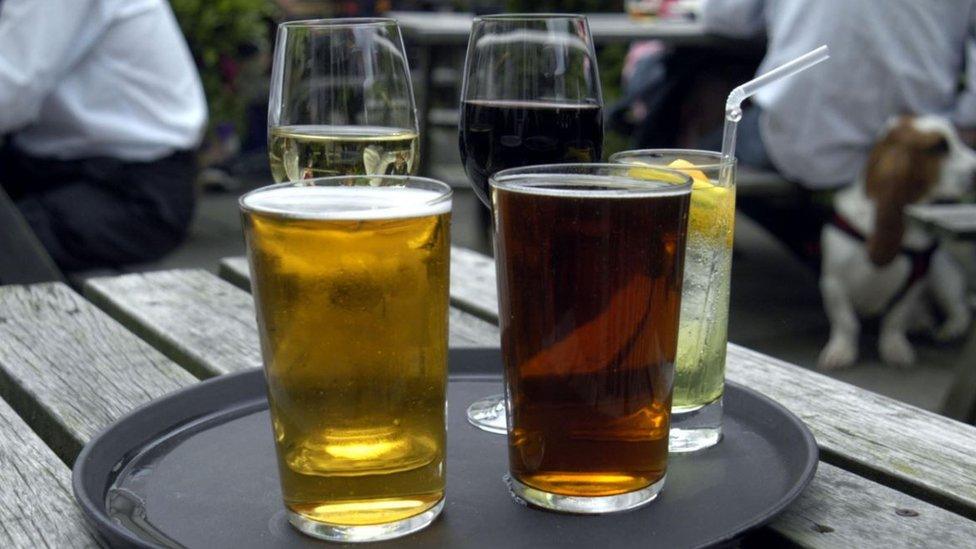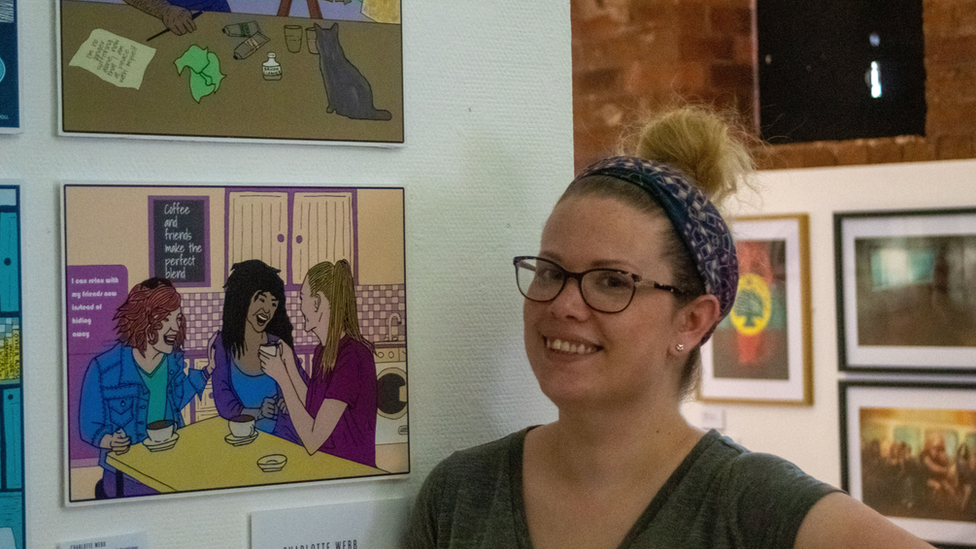Wolverhampton council targets high level of alcohol deaths
- Published

A high number of residents in Wolverhampton are drinking at harmful levels, said the council
A high level of alcohol-specific deaths has prompted a council to review its services.
In Wolverhampton 70 people died due to alcohol consumption in 2020, the worst rate in the country, said the council.
A further 54 deaths were registered in 2021, the majority among white and Asian men.
"Only one in five people who experience alcohol harm engaged with alcohol treatment support services," said public health expert Michelle Smith.
"This means there is an unmet need of 82% in the population - almost 2,950 individuals - which equates to approximately 650 individuals in treatment for alcohol dependency," she added.
Alcohol-specific deaths only include conditions directly attributed to alcohol, said the Local Democracy Reporting Service, such as alcoholic liver disease.
During 2020, Wolverhampton's alcohol-specific mortality rate was 29.3 per 100,000 population, compared to 14.0 per 100,000 in the UK.
UK figures reveal a record high of 9,641 alcohol deaths last year, a 27% increase on two years previously.

Deaths as a consequence of alcohol have risen sharply since the pandemic
In a report for the local authority's Hybrid, Health and Wellbeing Together panel, Ms Smith said the "socially acceptable" substance was seen as integral to daily life.
"In reality, alcohol can be a toxic substance that creates dependence and can cause serious health and social problems," she said.
Those undergoing treatment and support in the city had a 45% success rate, Ms Smith said, with completion levels better than the national average.
But she remained concerned about a "significant over-representation of deaths" in white and Asian men, compared to local populations.
A local Drug and Alcohol Strategic Partnership formed in July 2022 is developing specialist alcohol clinics in community settings.
A supported employment programme is also planned for March, to help people undergoing treatment into jobs.

Follow BBC West Midlands on Facebook, external, Twitter, external and Instagram, external. Send your story ideas to: newsonline.westmidlands@bbc.co.uk , external
- Published2 February 2011
- Published7 October 2021

- Published8 December 2022
